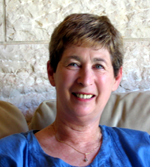
By Dorothea Shefer-Vanson
MEVASSERET ZION, Israel–I finished reading Howard Jacobson’s book, The Finkler Question, and was still pondering its manifold messages in the evening as I attended a performance of Gilbert and Sullivan’s H.M.S. Pinafore. This was given in Jerusalem by an amateur troupe composed mainly of immigrants from English-speaking countries..
Friends had tried to deter me from reading the book, saying that it was boring, difficult to get into, etc. I grant that the beginning is somewhat slow, and the idea of an eighty-year-old man learning to play Schubert’s Impromptu no.3 is utterly ludicrous. I say this as someone who has been struggling for years to master Impromptu no.1, so you can take my word for it.
But I found that as I persevered with the book, which is undeniably well-written, it became increasingly gripping. The characters came alive for me and I felt that they were real people. What surprised me most, however, was the book’s principal theme, which is essentially the question of Jewish identity in England today, and what it means to be a Jew in the diaspora. In addition, the book tackles the thorny subject of the attitude of both Jews and non-Jews to Israel and Zionism.
Jacobson ventures to poke fun at all those well-meaning and misguided Jews (I’m happy to see that he seems to agree with me on that point) who seek to distance themselves from the Israel of today. Jacobson uses not-so-gentle irony to put those individuals – many of them household names – firmly in their place, showing them up for the hypocrites they are. And he dispatches the Holocaust-deniers and belittlers in short order, to boot.
But to get back to H.M.S. Pinafore, which targets jingoistic British nationalism as well as the class system and Victorian mores in general. The performance I went to was attended by H.E. the British Ambassador to Israel, which gave the atmosphere that evening an extra fillip. There we were, a theatre full to bursting with mainly expatriate Jews from the UK, America, South Africa, Australia, and sundry outposts of the English-speaking world, all of whom had chosen to live elsewhere, but apparently still harbouring a yearning for the culture of our past.
In his book Jacobson seems to be seeking to underline that sense of ‘otherness’ that a Jew cannot avoid feeling, no matter where he or she happens to be living. By extension, this also appears to be the role that Israel is destined to play within the community of nations. Israel cannot, and perhaps never will, be accepted as a ‘normal’ country because it is judged by different standards, just as diaspora Jews, no matter how successful, can never feel that they are fully accepted by their adopted country, because of some innate ‘otherness’ that all Jews share – at least according to Jacobson.
The device of viewing the essence of being Jewish through the eyes of a Gentile who is a ‘wannabee’ Jew is elegant and entertaining, and gives rise to some really funny passages in the book. The reader is almost convinced that such a situation could actually arise, and that someone who is not Jewish by birth would seek to enter that supposedly clannish, esoteric world in order to become part of what might be interpreted as an anthropologically exotic tribe.
Reality prevails finally, however, and at the close of the book the characters are dispatched to their various ends. And that, I suppose, is the ultimate message of the book. Meanwhile, here in Jerusalem, the Jewish audience at Pinafore – possibly even with the participation of the ambassador – joined enthusiastically in the encore, which was a rousing chorus of ‘For he is an Englishman!’
*
Shefer-Vanson is a freelance writer and translator who lives in the Jerusalem suburb of Mevasseret Zion. She may be contacted at dorothea.shefer@sdjewishworld.com This article initially appeared in the AJR Journal, published by the Association of Jewish Refugee